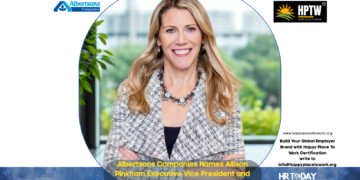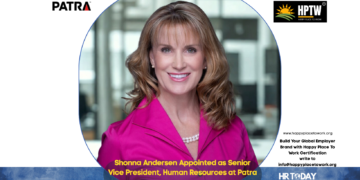Human Resources is meant to be the heart of an organization, a space where people turn for support, not fear. Yet, too often, HR becomes something entirely different. I’ve seen it… a department so focused on protecting the company that it forgets the people inside it. Policies, originally designed to offer clarity and structure, end up as shields of control or, worse, tools of exclusion.
This isn’t just a personal observation. Edward Freeman’s Stakeholder Theory (1984) reminds us that effective entities consider that all employees deserve genuine inclusion and respect. When HR overlooks that, trust quickly erodes.
Many believe that HR exists only to minimize legal risk or uphold a company’s reputation. But compliance without compassion turns HR into little more than a rules department, and it serves no one well.
Douglas McGregor pinpointed this decades ago. He contrasted a Theory X mindset, which assumes workers are unmotivated, with a Theory Y approach that expects people to contribute meaningfully when they are trusted and respected. The type of headspace you choose defines the systems you create.
I’ve seen victims sidelined, rules weaponized, and people treated as liabilities rather than individuals. HR may intend to uphold fairness, but it ends up silencing voices.
Consider strict attendance policies. While they might seem neutral, “intersectionalities” can intensify discrimination. In a paper titled “Demarginalizing the Intersection of Race and Sex: A Black Feminist Critique of Antidiscrimination Doctrine, Feminist Theory, and Antiracist Politics,” written in 1989, Kimberlé Crenshaw explained:
“Because the intersectional experience is greater than the sum of racism and sexism, any analysis that does not take intersectionality into account cannot sufficiently address the particular manner in which Black women are subordinated.”
That insight reveals how seemingly neutral policies can disproportionately impact individuals facing overlapping barriers. This lens is essential if we want policies to serve everyone equitably, not just the majority.
Policies also affect motivation. According to Self-Determination Theory, developed by Edward Deci and Richard Ryan, people do their best when they feel empowered, capable, and connected. As summarized in Verywell Mind:
“The theory… highlights the role of intrinsic motivation… suggests that individuals are more motivated… when they feel in control and capable of influencing outcomes.”
Pull away autonomy, competence, and belonging, and engagement falls apart.
Yet the most painful fallout I’ve seen is in performance reviews. Many companies promote them as developmental tools, but in practice, they often reflect bias, inconsistency, or hidden agendas. A 2016 article in the Harvard Business Review, “The Performance Management Revolution,” found that many review systems fail because they reflect the evaluator’s perspective more than actual performance.
To be clear: structure matters. But the best HR supports people while holding them accountable. You don’t need to sacrifice empathy for effectiveness or vice versa.
That brings us toBrené Brown, who wrote in Dare to Lead(2018).She reminds leaders that:
“The courage to be vulnerable is not about winning or losing; it’s about the courage to show up when you can’t predict or control the outcome.”
Yes, vulnerability builds trust, but Brown also warns that empathy without clear expectations can lead to chaos, just as rigid structure without empathy breeds resentment.
Some argue that too much flexibility opens the door to inconsistency or favoritism. That concern is real. But dismissing empathy isn’t the answer; it’s about wielding it wisely and responsibly.
As Maya Angelou said:
“We all should know that diversity makes for a rich tapestry, and we must understand that all the threads of the tapestry are equal in value, no matter their color.”
That’s the kind of HR I believe in: one that doesn’t just enforce rules but embodies them with integrity, care, and humanity. When policies unite rather than divide, and when HR views people as partners rather than problems, everyone benefits.
REFERENCES:
Edward Freeman – Strategic Management: A Stakeholder Approach
https://www.cambridge.org/core/books/strategic-management/E3CC2E2CE01497062D7603B7A8B9337F
Douglas McGregor – The Human Side of Enterprise (Theory X and Y)
Kimberlé Crenshaw – Demarginalizing the Intersection of Race and Sex: A Black Feminist Critique of Antidiscrimination Doctrine, Feminist Theory, and Antiracist Politics
https://chicagounbound.uchicago.edu/cgi/viewcontent.cgi?article=1052&context=uclf
Edward Deci and Richard Ryan – Self-Determination Theory: https://selfdeterminationtheory.org/theory/
Brené Brown – Dare to Lead: Brave Work. Tough Conversations. Whole Hearts.
https://brenebrown.com/book/dare-to-lead

Read Also : When HR “Produces Nothing”: A Response to Jennifer Sey’s Anti-HR Vision
The Fine Balance: Navigating Work, Life, and Mental Wellbeing
Mind the Leadership Gap – From Learning to Real-World Impact
How the Adecco Group is empowering its employees for the future of work













